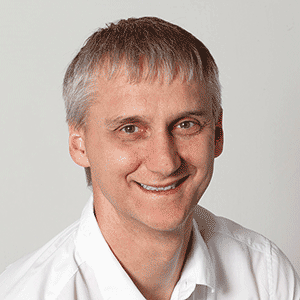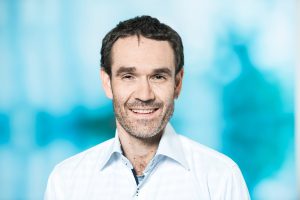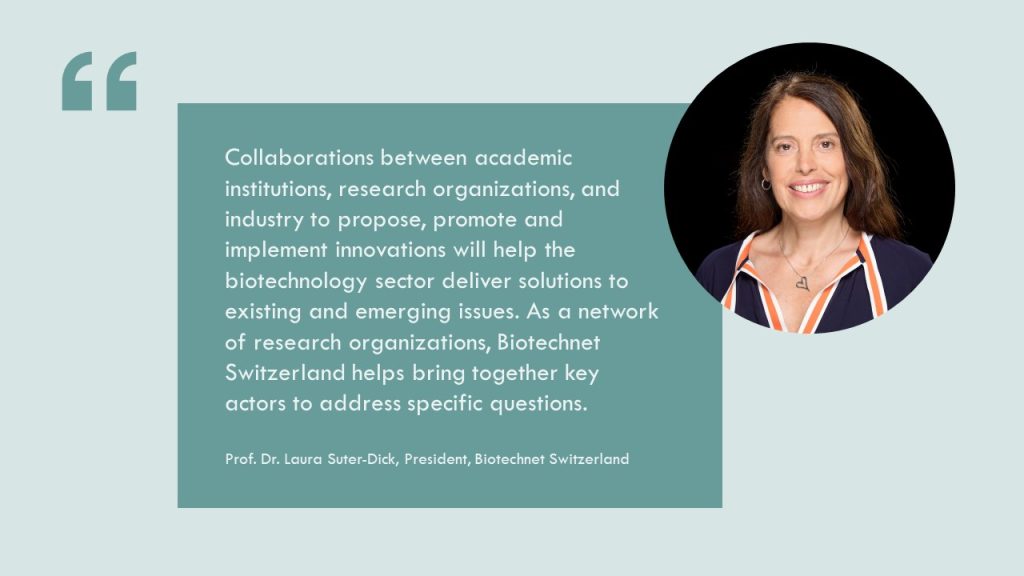
Biotechnet Switzerland actively supports the search for effective solutions to global challenges
 Verified listing
Verified listing
- News
- prev
- next
- prev
- next
News article
Biotechnet Annual Report 2022 - As published in the Swiss Biotech Report 2023 Written by Laura Suter-Dick, President, Biotechnet
The world as a whole – and specifically the healthcare system – faces tough challenges, including the aftermath of the recent pandemic and rising healthcare costs. Collaborations between academic institutions, research organizations, and industry to propose, promote and implement innovations will help the biotechnology sector deliver solutions to existing and emerging issues. As a network of research organizations, Biotechnet Switzerland helps bring together key actors to address specific questions.
Gender health
Sex and gender differences can have a strong impact on appropriate diagnosis and treatment, as diseases often present differently between the sexes. Established diagnostic tools and therapeutic approaches are mainly designed for males, with female pathophysiologies largely understudied in the past. Members of Biotechnet Switzerland facilitate discussion, research and implementation of tools promoting women’s health. The topic of sex and gender health was prominently addressed at the 2022 Swiss Symposium in Point-of-Care Diagnostics organized by the Biotechnet thematic platform In Vitro Diagnostics, co-led by Prof. Marc Emil Pfeifer (HES-SO) and Dr. Samantha Paoletti (CSEM).
- Dr. Antonella Santuccione Chadha focused on sex and gender differences in medicine and brain diseases in her keynote speech. Her fascinating talk increased awareness and prompted discussions around the need to include sex and gender analysis in clinical development and digital health. Her address was very positively perceived by students, young scientists and seasoned researchers.
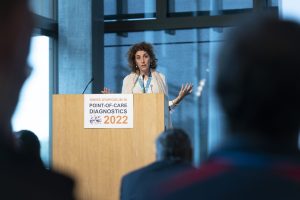 Dr. Santuccione Chadha leads pro bono the Women’s Brain Project, which brings together experts from various disciplines who work with patients and caregivers towards the implementation of sex and gender within precision medicine. She is also the Chief Medical Officer at Altoida Inc. and the Vice-President of Euresearch. https://www.womensbrainproject.com/ Three startup companies presented projects that address women’s health, developed in collaboration with Biotechnet member organizations:
Dr. Santuccione Chadha leads pro bono the Women’s Brain Project, which brings together experts from various disciplines who work with patients and caregivers towards the implementation of sex and gender within precision medicine. She is also the Chief Medical Officer at Altoida Inc. and the Vice-President of Euresearch. https://www.womensbrainproject.com/ Three startup companies presented projects that address women’s health, developed in collaboration with Biotechnet member organizations:
- Ava presented their fertility tracking bracelet. It provides data-driven support that helps couples get pregnant faster, which can reduce the need for costly or invasive fertility treatments. The technology was developed in collaboration with CSEM.
- Scailyte presented their first-in-kind molecular diagnostics for endometriosis, based on biomarker discovery from singlecell RNA sequencing. The average diagnostic journey for endometriosis is ten years and includes countless medical visits and invasive interventions. Developed with the University of Bern’s Insel Spital, Scailyte’s test provides results within a few weeks to help reduce the burden on patients, the healthcare system, and society.
- MOMM Diagnostics put forward tools to detect pre-eclampsia, a pregnancy disorder that can have devastating effects on the health of the mother and the unborn baby. Developed in collaboration with CSEM and FHNW, the test delivers information on the disease risk during pregnancy check-ups, helping doctors to optimize treatment, reduce the stress and anxiety for expectant mothers, save lives and reduce costs.
Antibiotic resistance
Antimicrobial resistance (AMR) has been called the silent pandemic and is an urgent global public health threat. It has caused the death of at least 1.27 million people worldwide and was associated with nearly 5 million deaths in 2019 (US-Center of Disease Control, 2022). It also has a major impact on veterinary medicine and agriculture. Causes of resistance are manifold, but the indiscriminate use of antibiotics, together with the inherent ability of microorganisms to develop resistance through mutations, is leading to an increased incidence of infections that either cannot be addressed with conventional antibacterial therapies or do not respond to pharmacological treatment. Biotechnet’s antibotics thematic platform is led by Prof. Markus Seeger, (UZH) and fosters research cooperations between more than 20 participants from academia and industry. The platform’s members bring together their expertise to discover and develop novel antibiotics to treat multidrug resistant bacteria, as well as rapid diagnostics. Projects include:
- Resistell and Prof. Gilbert Greub (Centre hospitalier universitaire vaudois - CHUV): Investigation of nanomotion-based technology for rapid antibiotic susceptibility testing.
- leadXpro and Prof. Markus Seeger (UZH): Sybodies for antibiotics drug discovery.
- BioVersys and Dr. Richard Kammerer (Paul Scherrer Institute - PSI): Development of early lead-like molecules targeting a bacterial transcriptional regulator to treat infections caused by the Gram-negative pathogen Acinetobacter baumannii.
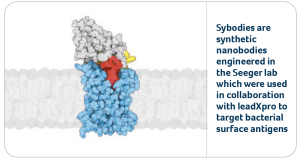 In addition to scientific advances, public awareness and outreach activities are key to fight AMR. In the context of the World Antimicrobial Awareness Week, (WAAW), Prof. Seeger explained the problem of AMR and the importance of taking appropriate countermeasures in a series of videos produced by Pfizer shared on social media.
In addition to scientific advances, public awareness and outreach activities are key to fight AMR. In the context of the World Antimicrobial Awareness Week, (WAAW), Prof. Seeger explained the problem of AMR and the importance of taking appropriate countermeasures in a series of videos produced by Pfizer shared on social media. 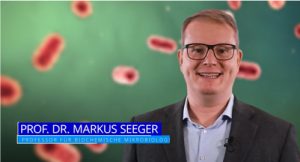
Reduction of animal experimentation
Animal experimentation in the life sciences has been a major topic of discussion worldwide for at least 50 years. It is a complex issue and requires the support of scientists, industry and health authorities. In 2013, animal testing for cosmetic ingredients was banned in the EU, prompting the development of in silico and alternative in vitro cell-based methods. In 2022, a historic landmark was the FDA modernization act which explicitly allows registration of new drugs based on pre-clinical data that does not necessarily include animal data. New in vitro methods to test efficacy and safety of compounds are thus needed, including complex human-based three-dimensional cell cultures, and organ-on-chip approaches, known as microphysiological systems (MPS). The Biotechnet thematic platform Tissue Engineering for Drug Development and Substance Testing (TEDD), led by Dr. Markus Rimann (ZHAW), has been promoting in vitro alternative methods for more than 10 years.
- TEDD organizes regular events at research and company sites to enable interactions and foster collaborations between scientists. In 2022, TEDD arranged visits to Biotechnet members FHNW and ZHAW, as well as to TECAN and AGORA.
- The TEDD Annual Meeting 2022, held together with the Biointerfaces International Conference at the ETH, Zurich, boasted an excellent scientific program focusing on recent developments of MPS and the clinical translation of these systems.
- Similarly, Biotechnet sponsored the Workshop on Next Generation Organ-on-Chips & Organoids in Geneva hosted by its member CSEM. This international conference brings together decision-makers from the pharma & biotech industry, clinicians, organ-on-chip suppliers, regulatory experts, and research organizations.
Biotechnet members are advancing applied research in in vitro and in silico testing and effectively providing alternatives to animal experimentation. These advancements are leading to collaborations between pharmaceutical companies and members of Biotechnet, as exemplified by several recent projects funded by Innosuisse:
- Alentis Pharmaceutical and FHNW: Identifying mechanisms to treat liver fibrosis using three-dimensional cell culture systems.
- Anjarium Biosciences and ZHAW: Generating a novel exosome-based method for drug delivery across the blood-brain barrier.
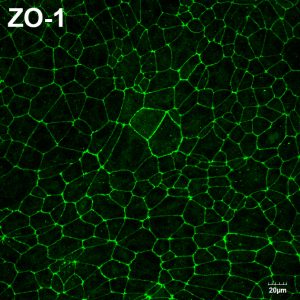 Blood-brain barrier cell model developed by Prof. Jack Rohrer and his group at the ZHAW.
Blood-brain barrier cell model developed by Prof. Jack Rohrer and his group at the ZHAW.
Circular economy and sustainability
The circular economy, sustainability of resources, and the current energy crisis are global issues that must be tackled by fostering collaborations. To address these challenges, Biotechnet is leveraging its international partnerships.
- The 2022 Summer School for Advanced Biotechnology was organized jointly by Biotechnet, Prof. Christoph Griesbeck (Management Center Innsbruck), the Ulysseus European University, and the University of Palermo. Researchers and students from 5 Biotechnet universities had the opportunity to interact with colleagues from 6 Ulysseus universities on the topic of Food, Biotechnology & Circular Economy. The lectures, workshops and networking activities opened new possibilities for collaborations within the framework of the European research program.
- 2022 was the last year of a successful European program on sustainable biotechnologies. INGREEN has focused on developing safe, bio-based, high-quality ingredients produced from underused food, pulp and paper by-products. Prof. Philippe Corvini (FHNW, Bioresources Platform) and teams of scientists from the FHNW (Prof. Patrick Shahgaldian, Prof. Christoph Hugi and Prof. Laura Suter-Dick) worked on whey pre-treatment and optimization of the biotechnological processes to produce galacto-oligosaccharies (GOS), which have potential benefits as prebiotics for animals and humans. They also studied lactobionic acid (LBA) and Y. lipolytica biomass, which can be used to produce innovative cheese prototypes with reduced ripening time.
Better understanding of disease, therapeutics, and diagnostics
Data science, artificial intelligence and quantum computing are powerful tools that can help us better understand diseases and develop more efficient treatments and diagnostics. Omics technologies have evolved a great deal in the past 20 years, due to advances in high-throughput technologies for generating and interpreting large amounts of genetic and molecular data.
Biotechnet’s newly formed Data Science platform led by Abdullah Kahraman (FHNW) and Moritz Kirschmann (CSEM) brings together Swiss-wide expertise from member organizations FHNW, CSEM, ZHAW and HES-SO. The group plans to foster interactions and exchanges on data analysis, machine learning and artificial intelligence in biotech on topics such as target molecule generation, digital twins of bioreactors, bioinformatics for omics technologies, and managing data in biotechnology.
Scientific symposia and collaborative projects bridging research and clinical activities are planned to harness the power of data science in providing solutions to health challenges.
IN ALL, BIOTECHNET’S MEMBERS STRIVE TO PROVIDE LEADING APPLIED RESEARCH AND FACILITIES THAT CAN SUPPORT THE DEVELOPMENT OF EFFECTIVE SOLUTIONS TO GLOBAL CHALLENGES. DISCOVER HOW WE CAN WORK WITH YOU BY VISITING OUR ONLINE DIRECTORY.
Published
- 24 April 2023

